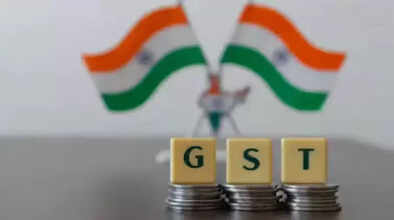The Modi government's GST reforms will make many things cheaper, from cars to cement, and consumption will get a boost

GST Reform: Prime Minister Narendra Modi made a big announcement of GST reforms on the occasion of Independence Day on 15 August. It is being told that this decision of the government will not only reduce the tax burden on the public, but will also boost consumption. There is a wave of happiness among investors due to this 'surprise gift' of the government. The situation is such that auto, cement, consumer, and financial stocks have increased because if the price decreases, it will have a direct impact on consumption.
This step is positive for the country
At present, four rates of 5 percent, 12 percent, 18 percent, and 28 percent are applicable in GST. The government is considering implementing a two-tier GST structure by eliminating the slabs of 2 percent and 28 percent. Apart from this, it is also thinking of imposing a high GST of up to 40 percent on sin goods like tobacco, pan masala, cigarettes, and gambling. According to the Outlook Business report, Emkay Global says, "This is a big positive step for India as it will boost consumption, it will be easier to do business with lower rates, this will lead to more formalization of the economy as tax evasion will be reduced, which will be beneficial."
These sectors will benefit
Brokerage firms say that if the 28 percent GST slab on passenger vehicles and two-wheelers is reduced to 18 percent, then the automobile sector will benefit a lot. Jefferies also says that this reduction will benefit all companies like Jazz, Hero, TVS and Eicher. Motilal Oswal has also included Tata Motors and Ashok Leyland in the list of beneficiaries as these companies have a large presence of vehicles in the passenger vehicle segment.
The reduction in GST rates is also expected to increase the demand for air-conditioners and white goods. CLSA has said that Voltas and Havells will benefit more. The brokerage said, we expect this change to strongly impact the demand for air conditioners, especially after recent signs of weakness. Cement is currently subject to GST at the rate of 28%. Motilal Oswal estimates that if the rates are reduced to 18%, prices could fall by 7.5-8%.
For real estate developers, cheaper cement could increase their margins by 40-50 basis points, as it accounts for 4-5% of home prices in many big cities. However, according to Jefferies, the government could face a revenue loss of Rs 20,000-25,000 crore.
Prices of these products are also expected to come down
If food and beverage items like dairy, bottled water, juice and packaged snacks come from the 12% slab to the 5% slab, then the margins of companies like Bikaji, Gopal Snacks, Nestle India and Dabur will come down. Jefferies said that ayurvedic companies like Dabur and Emami may benefit more, as most ayurvedic products fall in the 12 percent slab, which can possibly be reduced to 5 percent.
There is also talk of reducing GST on health
There is also a consideration to reduce GST on health and life insurance. Emkay said, "Reducing GST on term plans from 18 percent to 5 percent will help Max Financial, while insurance companies like Star Health and ICICI Lombard may benefit indirectly from a possible increase in vehicle sales."

